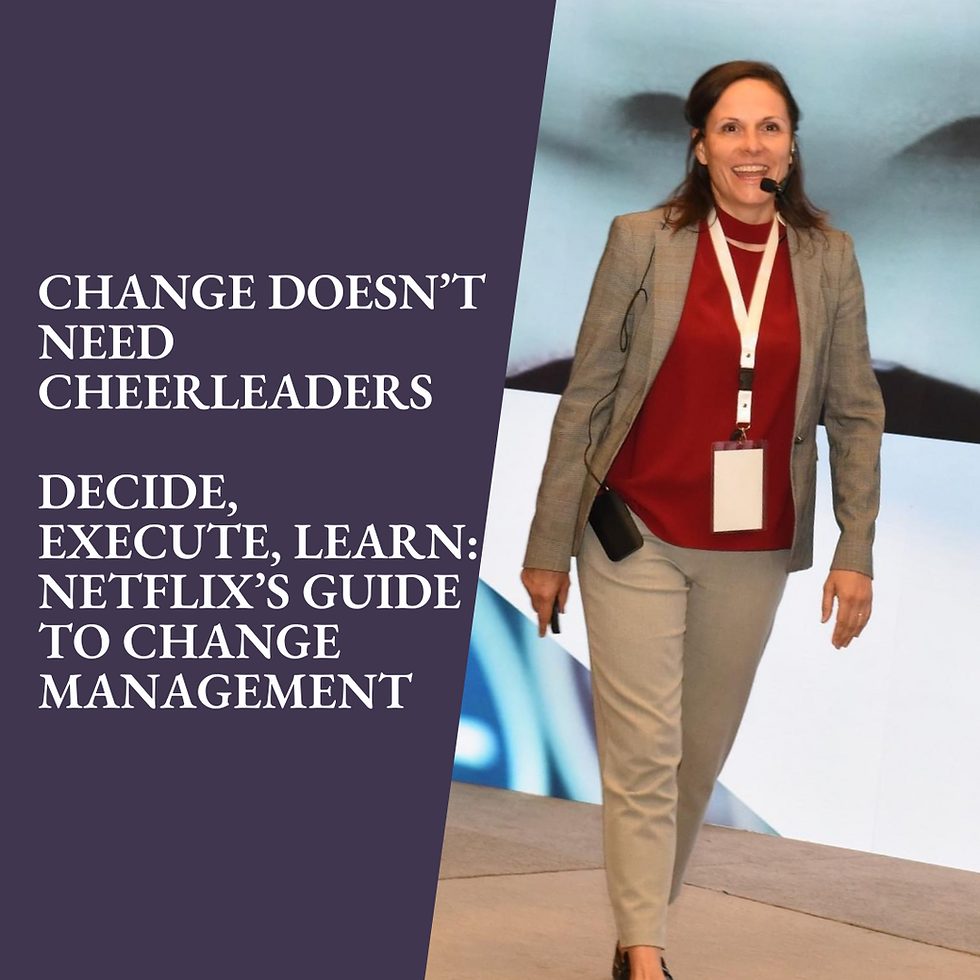Lack of Flexibility in People Management Practices
- Szilvia Olah

- May 20, 2023
- 2 min read
Should we be able to opt-in and out of corporate practices or at least choose them based on our needs?
Flexibility has become a significant word in organisations, yet, if you look around, you find very little of it. People have different needs not limited to working hours but also how their performance is managed.
However, a one-size-fits-all system is imposed upon us whether we like it or not. So what could organisations, managers, and leaders consider to better cater for their employees and get better performance out of them? Here are some ideas:
Feedback vs Coaching Conversations (Feedback gives information on past behaviour, while coaching focuses on future actions. Whilst we need feedback, sometimes many people prefer to focus on how to move forward rather than what's happened.
Bi-annual or annual appraisal vs Monthly check-in (I prefer a quarterly performance review based on my past three months' achievements, tied into the annual goals and consolidated during the annual appraisal. This keeps people on track, and there are no surprises.)
Training attendance vs Self-learning/development (Some people are excellent at managing their learning or development as long as they know what they must know or develop. I would opt for autonomous management of my development, including using company-provided programs and resources if I thought they were suitable. That way, I would choose how and when I learn. This can be tracked and discussed during the quarterly check-ins.)
Close supervision of performance vs autonomous working (Some people need micromanaging or close monitoring, and some prefer to work independently and report completion or look for help when needed. When managers have this information, it is easier to set expectations around working relationships and performance.)
Engagement activities vs Not attending them (It can be a draining experience to some, especially when employees are "forced" to attend events outside of working hours. However, they are labelled as "not a team player" if they don't show up. The stigma could be removed if companies put it out there that it is optional and they meant it.)
Annual bonus vs Monthly service charge (Sometimes money is tight, and having that guaranteed end-of-the-month service charge is a big help. Also, employees who leave just before the bonus period lose out. Either lose the bonus or a new job opportunity.)
And my favourite three categories for your professional development (source Lucy Adams HR Disruptive webinar). You can choose one for the coming year
- In it to win it (for those who want to progress upward fast)
- In it for my life (for those who are more focused on work-life balance, the pace of development is slower)
- In it to experience it (for those who want non-linear progress and want to collect more experiences and learn)
Having flexible people management practices would show employees that we care about their needs, and as a by-product, we would get better performance out of them.
For example, some need frequent conversations around performance, while others are happy with twice or even once a year. Choosing one doesn't rule out the other if necessary or under special circumstances.
If you need help designing flexible people management practices, let us know:

.png)



Comments